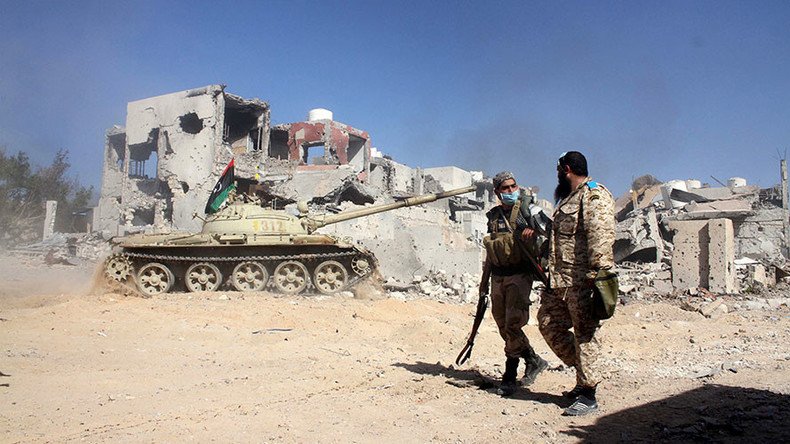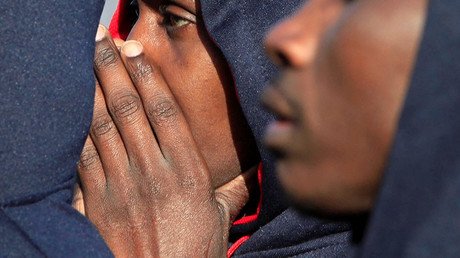'Defeat ISIS and go home': Trump rejects US role in Libya nation-building

President Donald Trump does not see a US role in helping its European allies build a government in Libya. Instead, he told reporters, he wants to defeat Islamic State, after which the US can focus on domestic issues.
Speaking to reporters in Washington, DC on Thursday, following a meeting with Italian Prime Minister Paolo Gentiloni, Trump contradicted his guest’s assessment that the US role in stabilizing Libya would be critical, arguing the US has “enough roles… everywhere.”
“I do not see a role in Libya,” Trump said. “I do see a role in getting rid of ISIS. We’re being very effective in that regard.”
'US has enough roles': #Trump not interested in #Libya nation-building
— RT America (@RT_America) April 20, 2017
Read more: https://t.co/Cf0ndYHdoPpic.twitter.com/OfJDndQaL8
“We are effectively ridding the world of ISIS. I see that as the primary role, and that’s what we’re going to do – whether it’s in Iraq, or in Libya, or anywhere else. And that role will come to an end at a certain point, and we’ll be able to go back home and rebuild our country, which is what I want to do,” Trump concluded.
Gentiloni had just finished making a case for US involvement in stabilizing Libya by helping the internationally recognized government in Tripoli establish control over the country’s entire territory.
READ MORE: Chaos unrelenting: 6 years since Arab Spring started, no democracy in sight for Libya
“We need a stable and unified Libya,” the Italian PM said, noting that US Special Forces had taken part in defeating Islamic State (IS, formerly ISIS/ISIL) in the port city of Sirte, but that solving the problem of migrants crossing the Mediterranean to Italy and beyond would require nation-building. “The US role in this is critical.”
Trump’s rejection of that role is at odds with his recent actions – launching a missile strike in Syria, escalating tensions with North Korea, and authorizing a review of the nuclear deal with Iran – but in line with his promise during the 2016 presidential campaign.
“We’re getting out of the nation-building business,” Trump announced on April 27 of last year, describing his foreign policy as “America first.”
Libya collapsed into chaos and anarchy in 2011, after the Obama administration backed a rebellion in Benghazi against Colonel Muammar Gaddafi, the country’s leader since 1969. Using UN Security Council resolution 1973, authorizing a no-fly zone in the north of the country, NATO began air strikes in support of the rebels. In October 2011, one such strike hit a convoy carrying Gaddafi, who was then captured and killed by the rebels.
As Libya collapsed, neighboring countries of Tunisia, Egypt and Mali had to deal with a surge in terrorist attacks. Meanwhile, human traffickers exploited tens of thousands of African migrants, who try to reach Italian shores in rickety boats. In a recent report, the International Organization for Migration (IOM) spoke of slave markets in the south of Libya, where Africans are traded for as little as $200.













